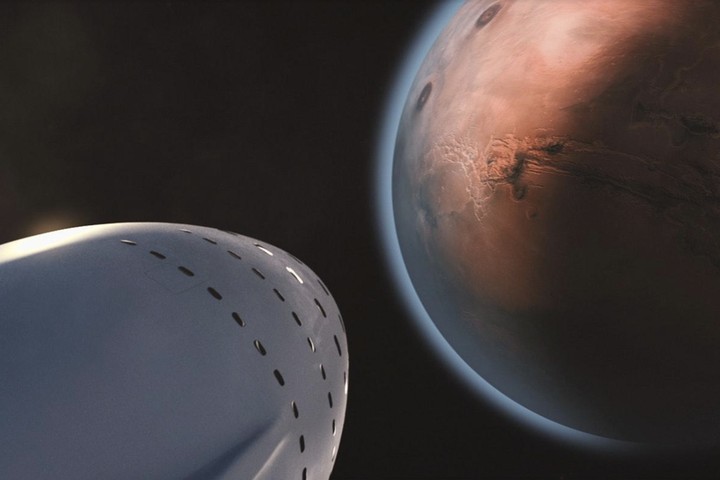
When it comes to investing in the future of humanity, there needs to be investment in science. However, some people question how investment in space exploration benefits current problems on Earth. For example, how does building a settlement on Mars help the housing crisis in California? While the correlation might not be obvious, it’s because of space programs we have things like GPS technology, accurate weather prediction, and ultraviolet filters in sunglasses to name a few. But exploring space is not only an opportunity to challenge ourselves and build advanced technologies that can help solve earthly problems, it’s also a chance to learn about our cosmic history which gives us insight into what the future might look like here on Earth. This is why there’s such a fascination with exploring Mars.
Why Explore Mars
The second smallest planet in the solar system and the fourth planet from the sun, Mars is considered the most accessible place for life other than Earth. This is why space programs from around the world (including NASA) have been launching missions to Mars since the 1960’s - to further understand its past, present, and potential for sustained life in the future. Exploring Mars helps scientists learn about momentous shifts in climate that can fundamentally alter planets like Earth. For example, NASA's Curiosity rover has uncovered signs of an ancient freshwater lake on Mars, which gives reasons to believe that the planet was once capable of hosting ecosystems. Additionally, magnetic materials on Mars suggest the planet once had a magnetic field much like Earth’s. Overall, many scientists believe the red planet holds the key for a bright new future for humanity. But getting astronauts ready for the journey to Mars and the Martian surface is no walk in the park.
Preparing For Mars
There are several tasks NASA is doing to prepare for a mission to Mars. Some of these include: One; advancements in propulsion systems which will help get the crew there (and home) quickly and safely. Two; next-generation spacesuits which prioritize safety while letting astronauts make more natural Earth-like movements. Three; providing uninterrupted, reliable power supplies that are lightweight and capable of running regardless of location or weather.
Another important task is preparing astronauts for life and work experiences they will encounter. Over the years, NASA has leveraged many training methods to prepare astronauts for space. For example, CHAPEA is a series of analog missions that simulate year-long stays on the surface of Mars. But one of the most useful tools has been Virtual Reality (VR). To date, research has identified over one thousand tasks that need to be performed during human expeditions to Mars; however, building each of these training elements for tasks individually is unrealistic given the time and cost constraints. But through the ease of NASA’s new Mars XR Operations Support System (XOSS) environment, using Epic Games' Unreal Engine 5, NASA can now have an immersive, engaging, and realistic experience that will help prepare for life and situations on Mars.
How You Can Help
Getting a crew to Mars is NASA’s biggest challenge to date. It will require all hands on deck to make the mission successful. This is why NASA is (once again) leveraging open innovation as a source of aid, and is currently looking for developers to help create a new Virtual/Extended Reality (XR) research, development, and testing environment for test subjects. The goal is to give them an immersive experience that can be updated and modified with new hardware and software solutions and physical equipment as they are created.
This prize challenge comes with a bonus that extends beyond cash winnings. Winners will also get an opportunity to receive a 30 minute Zoom call with the NASA team that is developing and using the NASA XOSS MarsXR Engine and will receive official NASA “swag” from past NASA projects and/or missions.
The MarsXR Challenge is your opportunity to help create an immersive learning technology that may support future astronaut training and exploration, and further the future of humanity. If this challenge ignites your developer spirit, check out the challenge details and send in your submission by June 30, 2022.








